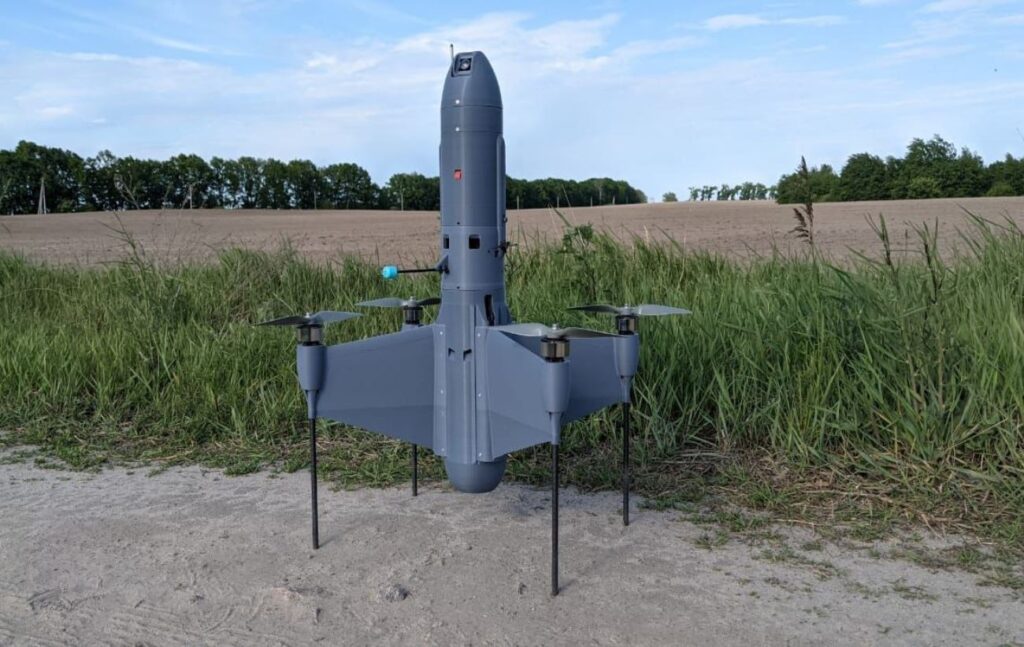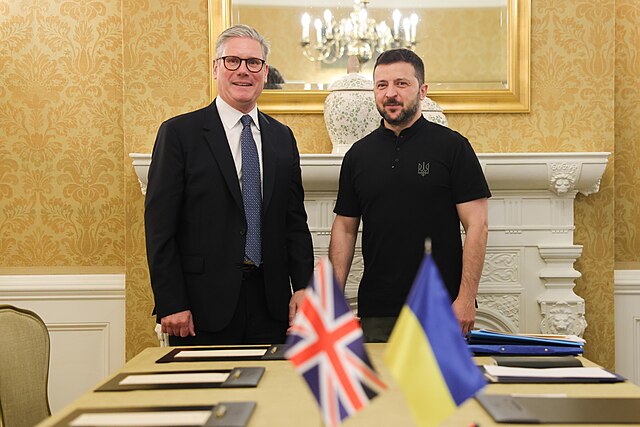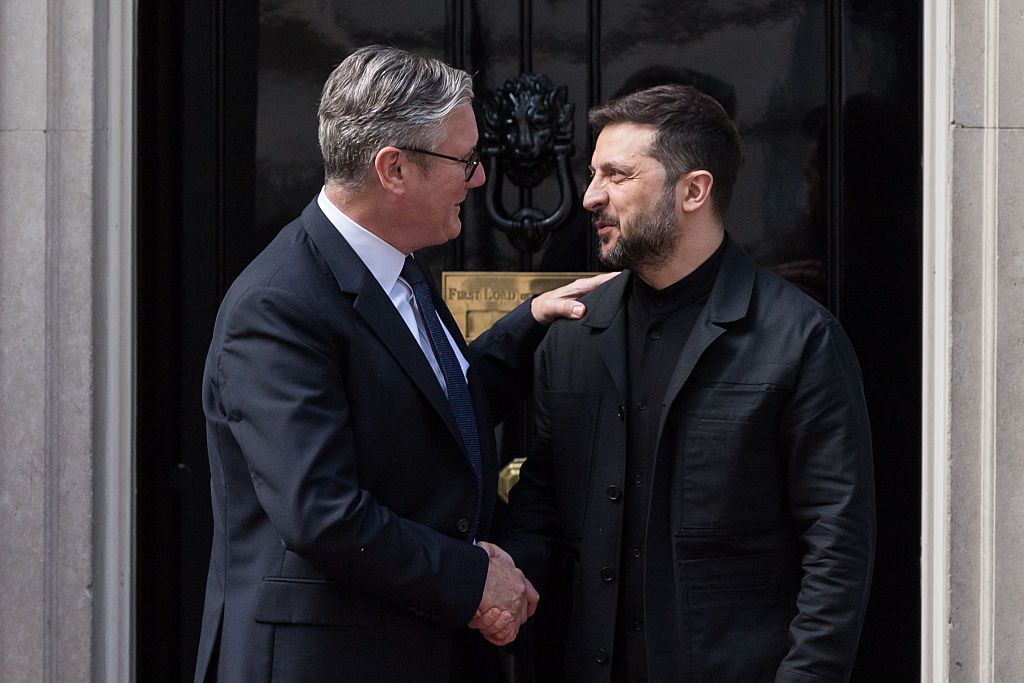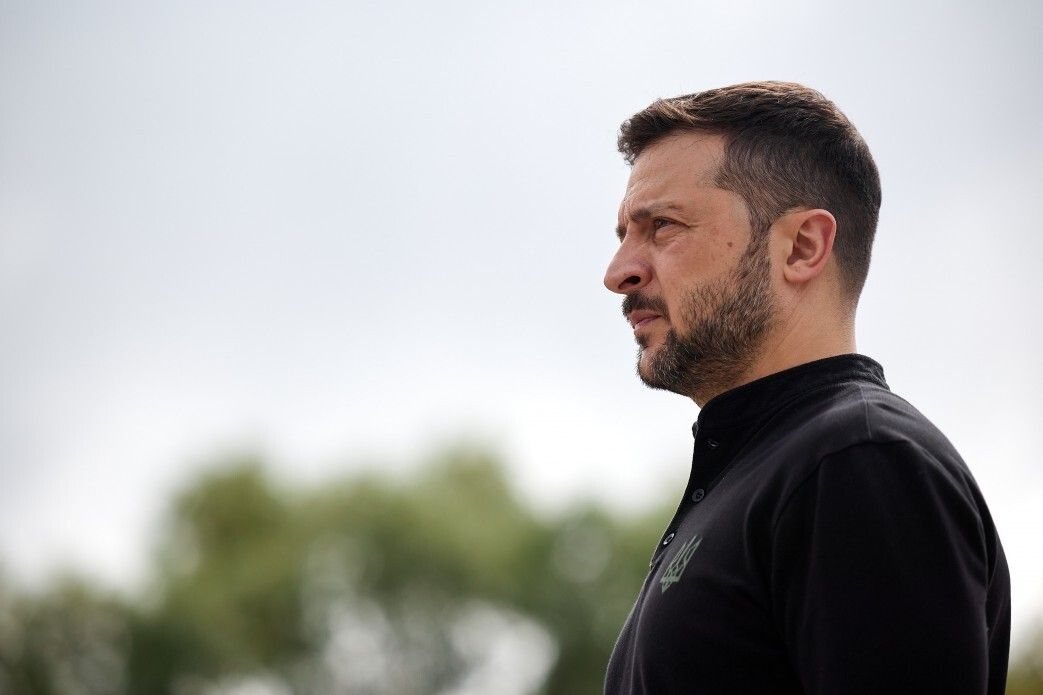BBC Apologizes to Trump Over Film Edit but Declines to Pay Compensation

© Pete Marovich for The New York Times


© Pete Marovich for The New York Times


© Hannah McKay/Reuters


© Toby Melville/Reuters


© Carl Court/Getty Images


© Henry Nicholls/Agence France-Presse — Getty Images


Ukraine and the United Kingdom begin joint production of Octopus interceptor drones. The initial pilot batch, consisting of up to 1,000 drones, will be built in the UK at state-owned facilities. The Octopus drone will become the first Ukrainian combat drone to be serially produced in a NATO country, with Ukraine retaining full intellectual property and technological control. Combat deployment of the drones will take place in Ukraine after testing.
This comes amid the ongoing Russo-Ukrainian war, as Russia continues to escalate its daily explosive Shahed drone attacks on Ukrainian rear cities. Ukraine is deploying all available means to counter the threat, including domestically developed interceptor drones. Earlier, the country's President Volodymyr Zelenskyy stated that intercepting 800 Russian Shaheds would require 1,600 interceptors, while Defense Minister Denys Shmyhal said Ukraine would be able to use at least 1,000 interceptor drones per day to defend against Russian attacks.
On 25 October during a live television appearance and later on Facebook, Rustem Umierov, Secretary of the National Security and Defense Council, announced the plan. He confirmed that both software and hardware used in the drones belong to Ukraine. He emphasized that this is a state-level project carried out by the defense ministries of both countries. The technology is classified as sensitive, and Ukraine will maintain control over all critical components, according to Liga.
The official added that the production scale would eventually increase to meet Ukraine’s operational requirements, though the final target figure was not disclosed. The UK will manufacture the first drones in its government facilities, and following successful testing, they will be deployed for combat use in Ukraine.
According to Ukrinform, the agreement was signed in London within the framework of the Build with Ukraine program. It involved direct collaboration between the defense ministries of both countries. Umierov stated that the Octopus will become the first Ukrainian combat drone to be mass-produced in a NATO country.
In September, the British government had already announced the upcoming agreement, which would cover the joint development and production of advanced military equipment. It also confirmed plans to produce thousands of Octopus drones each month for transfer to Ukraine. The agreement includes technology-sharing provisions expected to create defense-sector jobs in Britain and improve security for both nations.
President Zelenskyy demonstrated the Octopus drone to UK Prime Minister Keir Starmer on 24 October and confirmed the agreement for the first batch of production, as reported by RBC Ukraine.
In September, Militarnyi reported that the Octopus drones will form the foundation of a European “drone wall” intended to defend against Russian drone and aircraft incursions. British Defense Secretary John Healey told The Telegraph that these Ukrainian-designed drones have already proven effective against Iranian-made Shahed kamikaze drones and are significantly cheaper than foreign equivalents — costing less than one-tenth as much.
The Octopus system is expected to be deployed along NATO borders to deter Russian aerial intrusions. There are also plans to use the drones in missile defense operations protecting military infrastructure and strategic facilities in the UK.
Earlier in September, Ukrainian drone manufacturer Ukrspecsystems revealed an approximately $250 million investment to build a new production facility in Mildenhall, UK.


British Prime Minister Keir Starmer urged European leaders at a "coalition of the willing" summit in London on 24 October 2025 to send more long-range missiles to Ukraine, as the White House's first major sanctions against Russia's energy sector this year signal a strategic shift in Western pressure on Moscow.
President Volodymyr Zelenskyy was in London for the summit. NATO Secretary General Mark Rutte, Denmark's Prime Minister Mette Frederiksen and Netherlands' Dick Schoof also attended, with other leaders including French President Emmanuel Macron joining virtually. The summit comes shortly after US President Donald Trump imposed sanctions on Russia's two largest oil companies, Rosneft and Lukoil, following the collapse of planned Trump-Putin talks.
Starmer's push for long-range weapons represents a strategic shift from defensive operations to actively degrading Russia's deep logistics network. "I think there's further we can do on capability, particularly... long-range capability," Starmer told Zelenskyy at Downing Street before the summit.
The timing reflects Ukraine's growing momentum in striking strategic Russian targets. On 21 October, Ukrainian forces used British-supplied Storm Shadow missiles in a combined strike on the Bryansk Chemical Plant, a facility producing ammunition and serving as a frontline artillery repair hub for Russian troops, according to Euromaidan Press.
While Russia continues devastating strikes on Ukraine's energy infrastructure—destroying approximately 60% of the country's natural gas production and forcing nationwide blackouts, according to Institute for the Study of War assessments—Starmer cited a recent Russian strike on a nursery as proof Putin lacks seriousness about peace.
"The only person involved in this conflict who does not want to stop the war is President Putin," he said during his speech.
Britain became the first Western country to provide long-range cruise missiles in May 2023 by sending Ukraine its Storm Shadow system, which can strike targets over 500 kilometers away. The UK subsequently lobbied intensively—particularly targeting Washington—to lift restrictions on using these weapons inside Russia.
Storm Shadow missiles have proven their strategic value, playing a critical role in destroying multiple vessels of the Russian Black Sea Fleet and forcing the remainder to withdraw from the northwestern Black Sea, according to Euromaidan Press. France restarted production of the SCALP variant at MBDA's UK Stevenage facility in 2025 after a 15-year pause.
However, Storm Shadow strikes deep inside Russia require US approval due to classified American cartography data used in the missile's guidance system, Defense Express has noted. Without access to this data, the missiles would be limited to GPS navigation, potentially making them vulnerable to Russian electronic warfare.
Separately from the long-range weapons push, Starmer announced Britain will accelerate delivery of 140 Lightweight Multirole Missiles to Ukraine this winter, ahead of the original schedule. This forms part of a £1.6 billion deal for over 5,000 such missiles, supporting hundreds of jobs at Thales in Belfast.
The summit also pressed allies to "finish the job on Russian sovereign assets" to unlock billions for Ukraine's defense. The day before, EU leaders tasked the European Commission to develop options for funding Ukraine for two more years, leaving the door open for a €140 billion "reparations loan" backed by frozen Russian assets—though Belgium, where most frozen assets are held, has raised legal objections.
Read also:


Russia is preparing a humanitarian disaster in Ukraine this winter, Ukrainian President Volodymyr Zelenskyy has warned. His statements came during a meeting with UK Prime Minister Keir Starmer in London ahead of a joint conference with leaders of the Coalition of the Willing, UNIAN reports.
On 24 October, the Coalition of the Willing convenes in the UK. Leaders of European countries, NATO, and Ukraine’s partners will discuss ways to increase pressure on Russia, strengthen Ukraine’s defense ahead of winter, and ensure energy security with over 20 allies.
NATO Secretary-General Mark Rutte will also come to London to participate in the meeting.
Starmer noted that Russian dictator Vladimir Putin shows no willingness to participate in peace efforts and continues attacks that harm civilians, including children, as per the Independent.
“I agree with you that Putin does not show any desire to end the war, and once again has taken steps that will lead us to a humanitarian disaster.
This is what he intends to organize this winter, targeting energy, gas, and water supply,” Zelenskyy emphasized.
Zelenskyy thanked the UK for its support and confirmed that Ukraine is not alone. The Coalition of the Willing will discuss security guarantees for Ukraine, enhanced air defense, and energy assistance.
“I think there’s further we can do on capability, particularly… long-range capability, and of course, the vital work for the coalition of the willing when it comes to the security guarantees that are necessary," Starmer said.
Earlier, Zelenskyy reported that some European countries possess long-range weapons, including Tomahawk cruise missiles, and Ukraine is already negotiating their delivery. The UK has previously provided Ukraine with Storm Shadow missiles.
Zelenskyy arrived in London amid increased economic pressure on Russia. This week, the US imposed sanctions on Rosneft and Lukoil, while the EU adopted its 19th sanctions package against Russia.


© Tyler Hicks/The New York Times


© Andrew Matthews/PA Images, via Getty Images


Ukrainian President Volodymyr Zelensky met with U.K. Prime Minister Keir Starmer at Downing Street on June 23, ahead of the NATO summit in The Hague.
Zelensky had earlier paid a visit to King Charles III at Windsor Castle before joining Starmer to discuss continued British support for Ukraine’s defense.
During a joint visit to a U.K. military training site for Ukrainian personnel, Starmer said he and Zelensky held "an excellent bilateral meeting" and had agreed to an "industrial military co-production agreement." He described the deal as "a massive step forward in the contribution that we can continue to make." Zelensky added the agreement "will be very strong and will transform both nations," though specific details were not disclosed.
Addressing Ukrainian troops, Starmer said it was "really humbling" to witness their "level of professionalism, commitment and bravery." Around 58,000 Ukrainian service members have been trained under the international program based in the U.K.
Zelensky thanked the U.K for its consistent backing since the start of Russia’s full-scale invasion in 2022. “We are very thankful to the UK... for such big support of Ukraine from the very beginning of this war,” he said. He noted that the UK-based training initiative has “strengthened our army” and enabled Ukraine to “survive and fight.”
The visit precedes the NATO summit in The Hague, where allies are set to unveil new defense spending targets. NATO Secretary General Mark Rutte said member states will aim to spend five percent of GDP on defense — a move he called “a quantum leap that is ambitious, historic and fundamental to securing our future.”
Under a compromise deal, members will commit to allocating at least 3.5 percent of GDP to core military expenditures and 1.5 percent to broader security areas such as cybersecurity and infrastructure.
 The Kyiv IndependentDaria Shulzhenko
The Kyiv IndependentDaria Shulzhenko


President Volodymyr Zelensky arrived in the U.K. on June 23 to conduct several meetings with "a primary goal" of deepening defense cooperation, presidential spokesperson Serhii Nykyforov said in comments reported by Ukrinform.
Zelensky's visit comes just a few hours after yet another Russian attack on Kyiv, which killed at least seven and injured almost 30 people. A residential buliding was partially destroyed in a direct ballistic missile hit.
In the U.K., Zelensky is to meet with King Charles III, British Prime Minister Keir Starmer, as well as with the speakers of both houses of parliament, Lindsay Hoyle and John McFall, according to Nykyforov.
Zelensky is also scheduled to meet with Ukrainian military personnel undergoing training in the U.K. and representatives of think tanks.
This year, the U.K. has allocated 4.5 billion pounds ($5.8 billion) for military assistance to Ukraine, marking its largest annual commitment so far.
London remains one of Kyiv's most steadfast military partners, providing long-range missiles, armored vehicles, training, and political support against Russian aggression.
 The Kyiv IndependentKollen Post
The Kyiv IndependentKollen Post